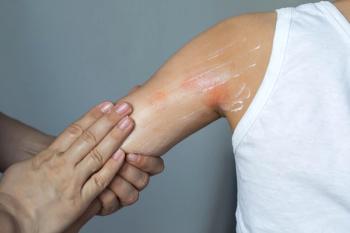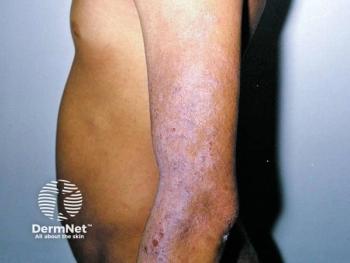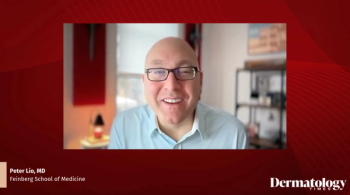
Add some acupuncture to your practice
National report — When traditional approaches fail, many skin conditions may benefit from the addition of a few needles — acupuncture needles, that is. Some physicians are having good success integrating acupuncture into their dermatological practices.
National report - When traditional approaches fail, many skin conditions may benefit from the addition of a few needles - acupuncture needles, that is. Some physicians are having good success integrating acupuncture into their dermatological practices.
"Acupuncture and other alternative medical therapies treat the roots of disease," he tells Dermatology Times, "while traditional medicine treats the branches. Integrative medicine combines these two approaches and provides a new level of care for the patient." Dr. Baker is a clinical assistant professor and director of integrative dermatology at the University of Medicine and Dentistry of New Jersey (UMDNJ)-Robert Wood Johnson Medical School at Camden. He became interested in acupuncture and other alternative approaches when he found success self-treating his own migraines while a medical school resident.
"Traditional medical therapy is often effective, more convenient and less expensive in some ways, since many health insurance plans do not cover acupuncture," he says. "However, acupuncture can correct imbalances in neuroendocrine, autonomic and immune function, thereby allowing us to have a deep impact on the core physiologic processes that determine our overall health, not to mention the optimal functioning of our skin. When used as adjunctive therapy, acupuncture allows us to enhance our patient care without interfering with traditional therapy."
Skin conditions that Dr. Baker has found respond to acupuncture include acute urticaria, acne, herpes zoster, psoriasis and atopic dermatitis.
"Traditional reviews of acupuncture report its effectiveness in treating (these conditions)," he says. "There are (also) multiple case reports of acupuncture being effective in other skin conditions such as (systemic lupus erythematosus), pruritus, rosacea, verrucae, scleroderma and dyshidrotic eczema, to name a few."
Advantages of using acupuncture, he says, include its safety and the ability to reduce or avoid use of more potentially risky topical and systemic therapies, such as steroids. In addition, acupuncture promotes a body-balancing effect that can help improve overall health.
Acupuncture is not without its disadvantages, however. Most insurance companies do not cover the expense, and it is less convenient and more time-consuming for both patient and physician than traditional therapy.
"Unless a patient has mild skin disease," Dr. Baker says, "he or she needs to be willing to come at least once a week for six to 10 visits to see significant improvement. And that improvement may or may not be lasting, depending on the severity of the disease and the multiple other factors contributing to that patient's general health."
Lifestyle changes Since acupuncture is only one part of an integrated approach to balancing the body's systems and optimizing overall health, it generally does not work well unless the patient is also willing to make some significant lifestyle changes.
"For example," Dr. Baker says, "the patient who continues to sleep five to six hours per night, eat poorly, not exercise and not meditate is unlikely to have lasting results. ... This is why it is so difficult to truly assess acupuncture's effectiveness in treating a given condition, especially skin disease, which may not significantly improve until a patient's other basic physiologic imbalances are corrected."
Dr. Baker cautions against use of acupuncture for pregnant women, except in the most experienced hands. It should also be avoided for those taking anticoagulants because of the risk of hematoma formation, and acupuncture needles should never be inserted through infected skin.
Physicians who would like to learn more about acupuncture can contact the American Academy of Medical Acupuncture, or visit the Web site at
Newsletter
Like what you’re reading? Subscribe to Dermatology Times for weekly updates on therapies, innovations, and real-world practice tips.












